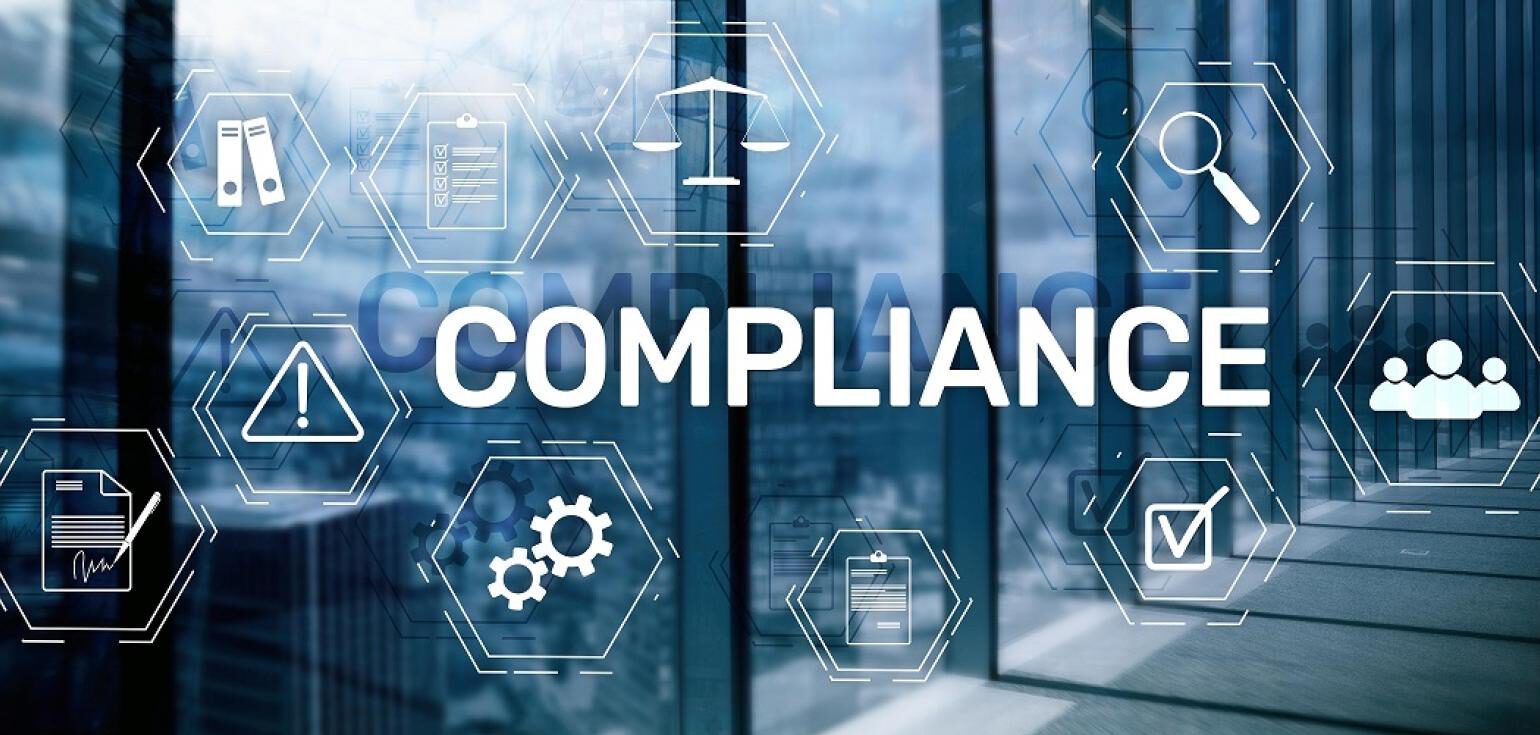by Massimo Balducci
In the ‘90s of the past century the syncopation glocal (global and local) was very popular as the challenge of that time was to be able to frame one’s everyday decisions in the flow of world’s events, the motto being ‘think global act local’. When looking at the Ukrainian war and the strengthening of international alliances, is this motto still worth while? At the opening of the new year 2024 I would like to share this question with the partners of the platform risk & compliance. My reasoning leads me to believe that not only success but even the very survival will depend more and more on the ability of framing oneself in the world scenario at large, whereas compliance is called upon to play a key role especially in the EU and its forthcoming developments.
A first remark, almost an obvious one. Almost all value chains are so intertwined at the global level that the idea of brooking them down is no more than a void illusion of outdated cognitive maps. The main role here is played not by politics but by technology whose development in the last 70 years has been having too often underestimated outcomes. On one hand technological development have been smoothing transport and communication. Thus, for the first time in the history of mankind, the “ideal type” perfect market has become true and real and not only a theoretical hypotheses, as buyers are actually faced in the very same instant by all the choices available in the market now the whole world. Theoretical models developed by classical economic scientists are now real! Not thanks to political decisions but to technological developments that political elites might possibly have mastered more adequately. From a different perspective one has to become aware of the increased speed of technological development and its consequences. Up to the ‘60s of the past century new products and new processes came into being at a few years intervals. This way it was possible for the national markets (such as the French one, the Italian one and the ones of the UK and of West Germany) to swallow the development’s costs of new products and processes. Effective the beginning of the ‘70s of the past century the development speed of new products/processes increased dramatically to the point that traditional national markets were no longer able to keep up with their development’s costs. Are we aware that the quality leap the European architecture made in the last decades, from the Maastricht Treaties and the establishment of the Euro, is mostly due to this phenomenon? In 1983 Volvo’s CEO Pehr G. Gyllenhammar (at the time Sweden wasn’t even a EU Member State) convened a Round Table between ETUC (European Trade Union Committee) and UNICE (Union des Industries de la Communauté européenne now Business Europe) that involved some of the top business people of Europe and two key Commissioners Ortoli and Davignon. The aim of the Round Table was to look for a way out of the handicap represented by the increased speed of technological development as it was too great of a burden for national markets not up to the task to absorb the costs of such a rise in development. The Round Table disseminated throughout the decisions making centers of the European Continent the awareness that it was imperative to move forward from a Common Market to an Internal Market large enough to absorb in a very tight space of time, developments’ costs. The chain “Delors’ white papere”, the two Maastricht Treaties, the two Nice’s Treaties and the two Lissabon’s Treaties are the outcome of the seeds disseminated by the Round Table (see https://www.riskcompliance.it/news/navigare-nella-ue-dai-giudici-alla-tavola-rotonda/ and https://wp.me/p6OBGR-4AZ).
This development has been having and it will have a direct impact on the professional every day life of this platform’s stakeholders. Internal Markets needs uniform accreditation tools to allow goods and services into the market. A car model that passed the checks by a French authority may now be used throughout the entire EU. The key role played by compliance all over EU countries is due to this fact alone. In no other markets is compliance as crucial as it is in the EU – not in the USA, nor in Canada, nor in Australia or South America not to speak of the Chinese market (see https://www.riskcompliance.it/news/la-ue-come-macrosistema-di-compliance/). It is not by chance that in the USA the EU is labeled as Fortress Europe.
At the local level people involved in compliance should ask themselves what will be the impact of the forthcoming EU enlargement. There will possibly be not only a larger market with more business opportunities. The enlargement calls, I would say desperately, is the professional-know-how of compliance officers. It will be of greater necessity to evaluate correctly the compliance of all the Member States with the standards set out by the EU, especially of some of them that will be mandatory to keep a given status within the EU or possibly to keep the EU membership! The white paper issued jointly by France and Germany on the perspective of enlargement is pretty clear on the issue (see Report of the Franco German Working Group on EU Institutional Reform, Paris Berlin the 18th of September 2023 at the following link https://www.diplomatie.gouv.fr/IMG/pdf/20230919_group_of_twelve_report_updated14.12.2023_cle88fb88.pdf). To what extent the problems the EU is having with the so called Visegard Countries could have been avoided if competent compliance officers had been involved in the pre-accession evaluation phases of these countries? Moreover: are we sure that other apparently non problematic countries would pass a check carried out by competent compliance officers? Compliance officers are well aware that a formal normative framework complying with expected standards might not be implemented which is, to my direct experience, often the case in Italy!
One additional, not to be taken for granted, remark. Smooth transports and communications not only facilitate the development of large market areas, but they also foster comparisons among different ways of doing things. On one side different administrations are called upon to work together (think of pension systems, health care insurances, postal interconnections, etc) often with great difficulties of mutual understanding (I was involved in some cross border cooperation efforts to discover that the same word, such as province or contract, does not have necessarily have the same meaning in different bordering countries). On the other hand smooth transports and communications trigger often off cross fertilisation processes. Anglo Saxon accounting systems are deeply influencing south European accounting systems both in the public and in the private sector. Matching recruiting and initial training, as it is done in France and Germany, is at the time being appealing to other countries which might be interested to learn how to do it. Organising labor market, not only as to the employer/employee relationships, but also as to training, according to the Germanic approach based on professional profiles negotiated and constantly updated within the social dialogue is becoming the EU common framework for a unified labor market (see https://esco.ec.europa.eu/en/about-esco/what-esco). This framework is being exported to Australia as well. Unfortunately not every country is getting involved in this cross fertilisation process as it should be. It is just for this lack of cross fertilisation that the integration of workers/employees into a different country is often painful. In most advanced countries work is basically organised according to processes while in other countries (especially in Southern Europe) it is organised according to small groups that, even within a large company, replicate in a informal way a sort of craftsman’s shops’ system. Here, not only performance is pretty low but it is as well hard to fully exploit digital tools including data science tools and expert systems (including AI). Compliance officers here are called upon to play a major role given that quality and compliance with quality standards can be actually implemented and evaluated only there where work organisation is based on processes.
Cross fertilisation is a real challenge as it forces to get aware and challenge one’s own cognitive maps that all of us usually take for granted. This platform, just because it is open to many European countries/cultures, can hopefully play a key role in this cross fertilisation process.
The author, Massimo Balducci, is a Professor at the University of Florence (Firenze) and one of the authors of our Italian website www.riskcompliance.it. He is an expert works for the European Network of Training Organisations of Local and Regional Authorities (ENTA). Massimo is also an author of several publications in French, English and Italian, with a focus on Public Management.






